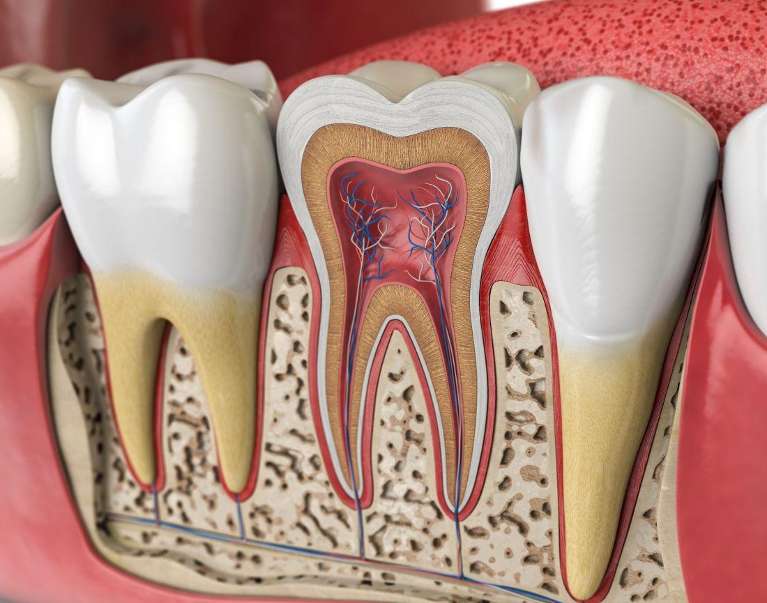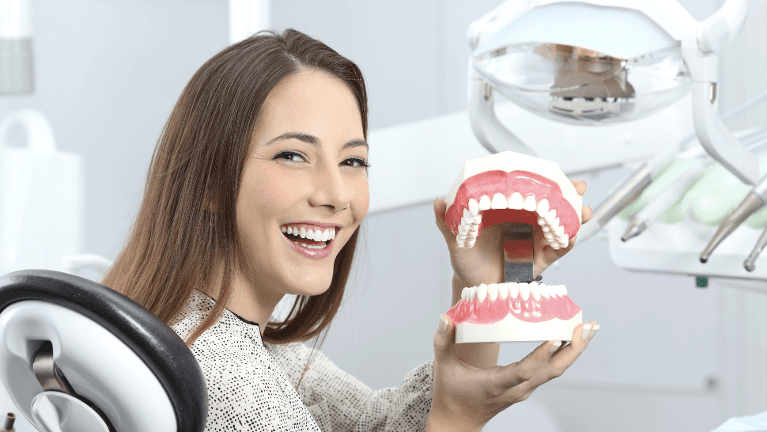Root canal therapy is one possible treatment when a tooth becomes infected. A tooth becomes infected when bacteria (often from a large cavity) reach the tooth's center, where the nerve is located. The nerve within the tooth then dies, leading to the need for a root canal. Teeth can also become infected due to recent or past trauma, such as the impact of a fall.
Once the nerve has died and a tooth has become infected, the other option is to remove the tooth (called an extraction). This can be a better option in some circumstances--when the tooth is too damaged to save--but keeping your tooth is often the way to go. Unfortunately, we can offer no better replacement than your natural tooth, so it is best to hold onto it in most cases.
What Are the Signs of an Infected or Abscessed Tooth?
Specific signs and symptoms indicate that your tooth is infected or that you have an abscess. One common sign is a blister or bubble on your gum next to the tooth, often called an abscess or fistula. Other signs and symptoms include:
- Hot or cold sensitivity in your tooth
- Pain when biting
- Swelling of your gums or face
- Spontaneous tooth pain
- A bad taste in your mouth as the infection worsens
If you are experiencing any of the above symptoms, please call our Columbus, OH, office at (614) 968-8752. Dr. Shiflett and the team do their best to fit in emergencies and care for them on the same day, if possible.
Will Antibiotics Eliminate My Tooth Infection?
Unfortunately, antibiotics may not eliminate the infection from an abscessed tooth. When the nerve inside a tooth dies and becomes infected, the blood supply to the tooth is compromised. When you take an antibiotic, it circulates in your bloodstream to access the area of infection. With the compromised blood supply, the antibiotic may be unable to get into your tooth's dental pulp, which is the source of the infection.
An antibiotic can be a valuable tool to help stop the infection from spreading further into your face and neck, but if the source of the infection is not removed by either a root canal or tooth extraction in Columbus.






